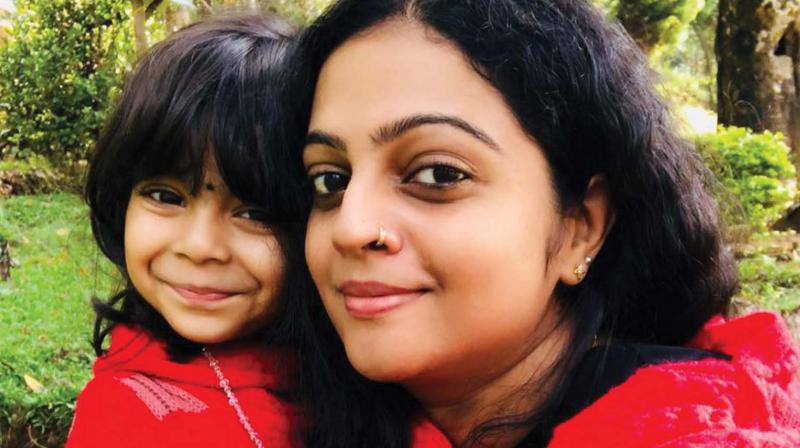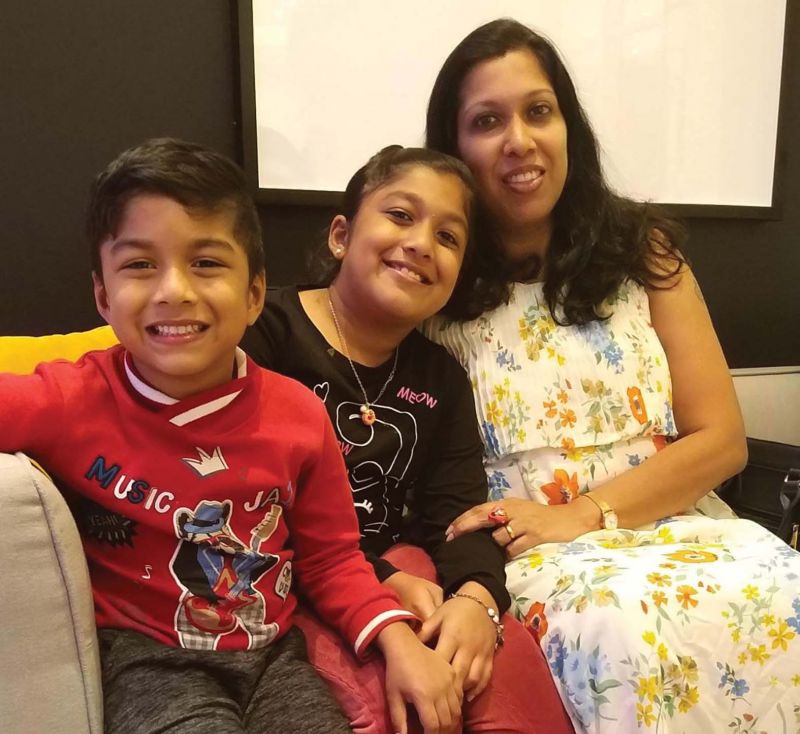The supermom trap
What is motherhood a default emotion that comes with womanhood or a romanticised epitome of sacrifice and selflessness?

Last weekend was literally saintly. Angelic praises, lovey-dovey selfies, emotional verses, cheesy songs, videos and artworks filled the air as people engaged in a virtual competition to show the world how much they love their mother. Just after the Mother’s Day, a few odd persons came up with interesting thoughts questioning the absurdity of the celebrations, pointing towards a few need-of-the-hour questions – Isn’t motherhood overrated? Isn’t the mental, physical and emotional well-being of a woman, in the romanticised guise of a stage of her life, being jeopardised in the process?
Among the thoughts stood out a Facebook post by popular model, TV host, RJ and emcee Aswathy Sreekanth, who explained how she fought post-partum depression while balancing her career and motherhood. While coping up with sleepless nights, mental agony of bottle feeding due to inadequate breast milk, physical changes and depression, time came for her to rejoin duty after maternity leave. And when she did, her child couldn’t adjust with the situation. Aswathy’s note that offers a glimpse of her struggles with motherhood, her crying little one, stressful flights from shooting locations and back, and her desperation and regret of leaving her child behind received several responses.

While many shared similar experiences and expressed support, there were many who felt that she was making a mountain out of a normal molehill called motherhood which is ‘a default emotion that comes with womanhood’. Reacting to the comments, Aswathy says, “Motherhood is undoubtedly a very responsible part of life, but the physical and emotional strain is so huge. A girl who has lived her whole life as an individual, is suddenly supposed to be responsible for another little life which is completely dependent on her. The role change is not easy to accept. She might overlook many of her personal challenges, but the constant judging by people around is traumatic.
They ruthlessly blame the mother and judge her choices and way of life. It’s not like in the stories or songs. Not all mothers feel love towards their newborns the moment they set their eyes on them. The pain, strain and trauma of childbirth might be too much for them to handle. Luckily, I had a supportive family. Not everyone has such a privilege. There are moments I have felt like screaming and even contemplated suicide, but society just judges others.”
Just a day ago, Dr. Suresh C. Pillai, a nanoscientist, posted on Facebook about how farcical are glorified words like ‘Mother’s Day’ and ‘motherhood’. Recalling the taunts and abuses his mother faced for six years after marriage for being unable to bear a child, Suresh’s note begins, “The words ‘motherhood’ and ‘Mother’s Day’ remind me of my mother’s bloodshot eyes, her six years of tears for her inability to become a ‘mother’.”
Explaining how his mother still remembers the harassment from relatives and neighbours for not being able to bear a child for six years, saying that ‘the greatest sorrow is that of not having kids’, Suresh says, “’Motherhood’ is an unnecessarily glorified term. Those who can’t be a mother (due to choice and due to biological reasons) deserve a happy life. That one can’t be a mother is not a disadvantage. They should be able to proudly tell others that it is their choice. Parenthood requires love; not DNA. To bring up a child, one needs to be capable of only loving. ”
Renu Shenoy, a Dubai-based blogger and a mother of two who writes about parenting, observes that the romanticisation of motherhood takes the attention off some grave issues mothers face. She notes, “In the recent past, we have been hearing many unfortunate incidents about children being brutally abused and killed by their own mothers. Though such acts can never be justified citing mental and physical health conditions, if we carefully look into these mothers’ past, we can find troubled or insecure childhood.”
She explains, “In the early days of motherhood, especially if she had a C-section, a woman needs help to take care of the baby, manage the daily routine, catch up with lost sleep and cope up with baby blues, which, if left unattended, might turn into postpartum depression. And by becoming mothers, women forget about themselves. How often do they have a ‘me time’ or take a break from their mommy duties? We need to understand that over-stretching by compromising on our ‘happiness’ (a big word that varies from person to person) will only affect the mental and physical well-being.”
Renu, too, points fingers at society which dictates a set of do’s and don’ts for the mothers, depriving them of their happy moments. “Society is always keen to portray that children are a woman’s sole responsibility and it’s just not OK to compromise on kids. Some accept it, some fight for their rights, some succeed, whereas some fail. Working moms mostly confront such ‘well-wishers’ and their umpteen queries. It’s high time we ignored such ‘sympathisers’ and moved on without guilt.”
The regressive ideas imparted in the disguise of sacrifice are equally farcical. Aswathy says, “Even today, my daughter, who is now five and a half years old, refused to have her lunch despite much cajoling. And finally when I sat down to eat, I am asked, how can a mother eat when her child hasn’t. Isn’t that ridiculous? I am not leaving her starved; she is a kid, she will eat when she wants to. It’s not cool to ‘impose’ regressive ideas of motherhood on a person calling it as sacrifice and nobility.”
Renu, too, objects to such ideas. “A mother is often hailed as an epitome of love, compassion and sacrifice. I have seen many mothers who compromise for the family, keeping aside her portion of food for the children and end up conveying the message to her children that the mother must give her share of food to the rest to enjoy their full meal. This only results in the daughter following suit and the son expecting his wife to do the same. I too was not different till I realised that my children should understand that mom is also equally significant. I might not be able to change the world, but I can at least attempt to educate the coming generations through my children.”
Aswathy observes, “It’s a never-ending concern of a woman that if she is a ‘good’ mother. What she loses in the process of trying to become the ‘good mother’ is never counted. My daughter doesn’t remember all those tantrums she threw as a baby, but now, she enjoys the limelight as a celebrity’s daughter and is happy to go out with her mother. My message to women is this. Do not compromise on your dreams for your children; sacrifices never count. Later, your children will be proud of you and how you managed to rear them while focusing on your happiness as well. Throw away all the guilt and live your life without trying to be the perfect mom.”
Renu backs her, “A mother of two kids, I know well that raising children is no cake walk, nor is motherhood a bed of roses. Let’s stop pretending to be ‘supermoms’. Supermoms aren’t real; they live in just stories.”

